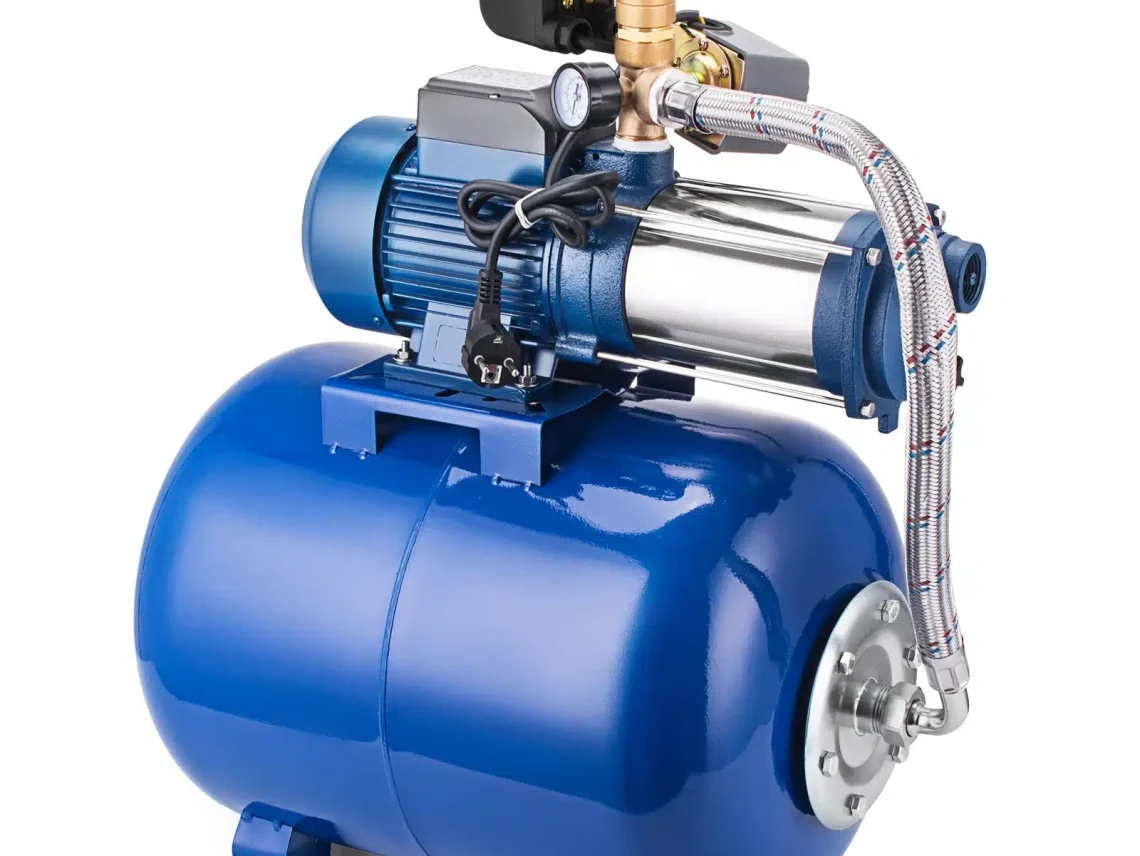
Table of Contents
TogglePressure vessels are essential components in a wide range of industrial applications, particularly in sectors like oil and gas, power generation, and biogas. These vessels are designed to hold gases or liquids at pressures significantly different from ambient levels. At Red River, we specialize in crafting high-quality pressure vessels designed to withstand intense conditions while delivering optimal performance.
One critical consideration when designing or maintaining a pressure vessel is the role of water within these systems. Water in a vessel, though often overlooked, can serve multiple functions, ranging from regulating pressure to enhancing thermal efficiency. However, this seemingly simple substance can also introduce challenges, particularly if not properly managed.
Water inside a pressure vessel acts as an effective medium for heat transfer, which is critical in systems that require efficient energy use. Water is also crucial in maintaining consistent pressure levels due to its incompressible nature. For instance, in power generation, water helps to regulate pressure, preventing dangerous fluctuations that could otherwise lead to system failures.
However, despite its advantages, water can pose risks, particularly in terms of corrosion. Long-term exposure to water can cause the vessel’s metal components to corrode, weakening the structure and potentially leading to catastrophic failures. That’s why the quality of water and regular maintenance play a vital role in extending the lifespan of pressure vessels.
Thermal Efficiency: Water is a fantastic conductor of heat, helping systems to transfer heat effectively. This is especially important in industries like HVAC, energy production, and chemical processing.
Pressure Regulation: Due to water’s incompressible nature, it helps stabilize pressure within the vessel, ensuring consistent performance.
Safety: Water can also act as a cooling agent, preventing the vessel from overheating and minimizing the risks associated with extreme temperatures or over-pressurization.
Increased Lifespan: When properly maintained, water-filled pressure vessels can last longer by reducing wear on internal components.
While water offers numerous benefits, it also brings several challenges that need to be addressed:
Corrosion: The primary concern with water in pressure vessels is corrosion. Untreated water, especially if it contains impurities, can lead to rusting, weakening the vessel’s structural integrity.
Water Quality: Using untreated or hard water can cause mineral deposits and scaling, further compromising the system’s performance.
Pressure Imbalances: Improper water levels can lead to pressure imbalances, posing risks to the safety of the vessel and surrounding equipment.
Regular Monitoring: Monitoring water levels is essential for ensuring that the vessel operates efficiently. Implementing automated monitoring systems can help ensure real-time updates.
Water Treatment: Using treated or deionized water can help reduce the risk of corrosion and scaling. It’s also crucial to conduct regular water quality checks.
Corrosion Prevention: To protect the vessel from corrosion, many pressure vessels include corrosion-resistant coatings or are made from materials specifically chosen for their durability against water-induced wear.
In conclusion, water plays an indispensable role in the function of pressure vessels, from heat transfer to pressure regulation. However, careful management of water quality and regular maintenance is vital to prevent the negative effects such as corrosion and pressure imbalances. By understanding the complexities and addressing the challenges of water in a vessel, industries can ensure optimal vessel performance and longevity.
If you’re looking for reliable solutions in pressure vessel design, maintenance, and management, look no further than Red River. We offer expert services tailored to your needs, ensuring top-tier performance and safety for all your industrial operations.
Reach out to us today and experience the Red River difference – where precision meets reliability.
Water is often used in pressure vessels because it is an excellent medium for regulating pressure and transferring heat. Its incompressible nature helps stabilize pressure, preventing fluctuations that could disrupt the system.
Yes, prolonged exposure to water, especially untreated water, can cause corrosion, which weakens the vessel’s structural integrity. Proper water treatment and regular maintenance are essential for preventing this issue.
Ensure that only treated or deionized water is used in the vessel. Regular water quality checks should also be conducted to avoid issues such as scaling, corrosion, and mineral deposits.
Water is a vital component in many pressure vessels, particularly in industries like power generation, oil and gas, and HVAC.
Proper management of water quality and levels can help prevent corrosion, pressure imbalances, and other performance issues.
Regular maintenance, water treatment, and monitoring are essential for ensuring the longevity of pressure vessels.
Table of Contents
ToggleIn the realm of industrial solutions, Red River emerges as a pioneer, offering a diverse range of custom-engineered products and facilities. Among our specialties is the design and production of Custom/OEM Pressure Vessels, meticulously crafted to meet individual client requirements, ensuring performance under various pressure conditions. Our expertise extends to the domain of prefabrication, where Red River leads with distinction.
The company excels in creating prefabricated facilities, modules, and packages, reinforcing its stance as a forerunner in innovation and quality. This proficiency is further mirrored in their Modular Skids offering, where they provide an array of Modular Fabricated Skid Packages and Packaged equipment. Each piece is tailored to client specifications, underlining their commitment to delivering precision and excellence in every project they undertake.